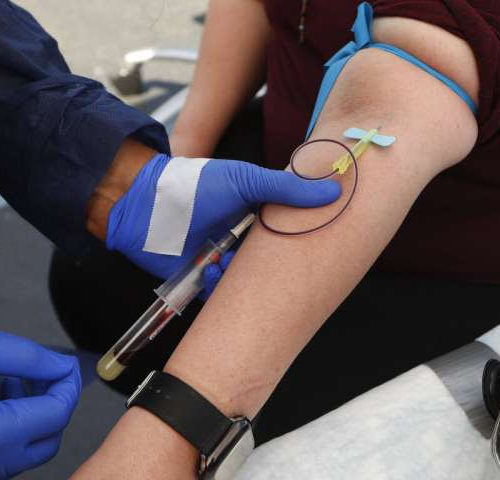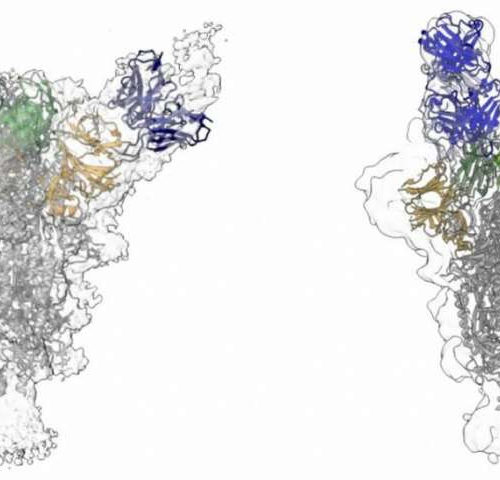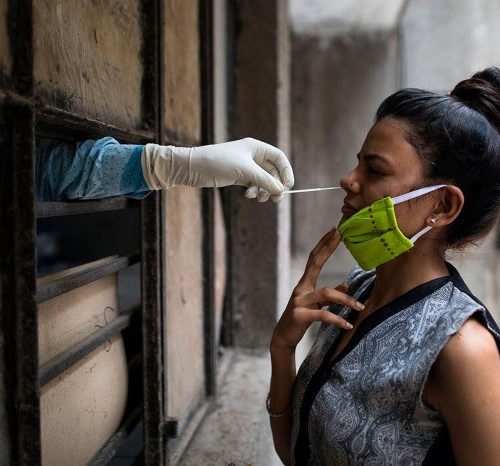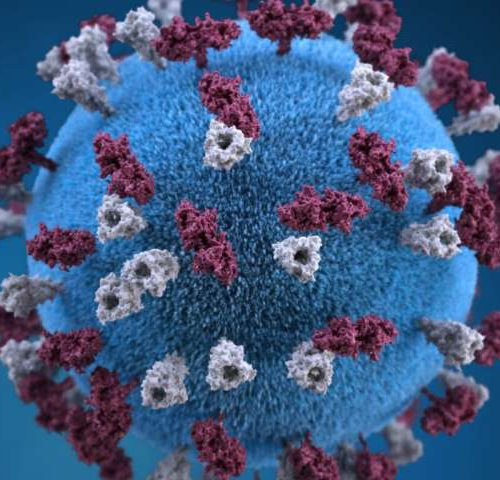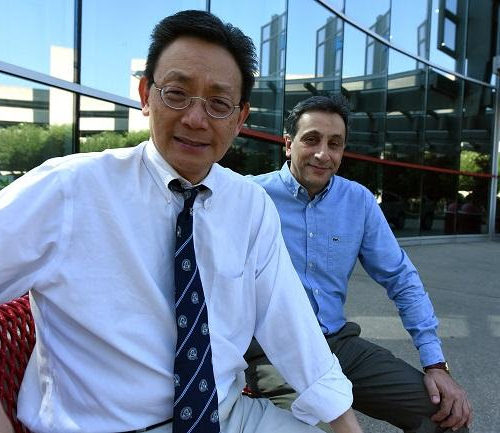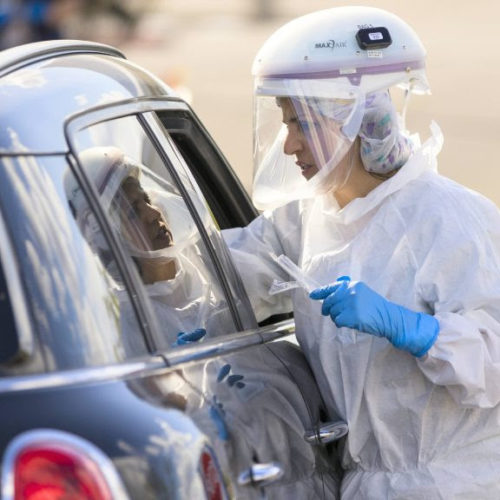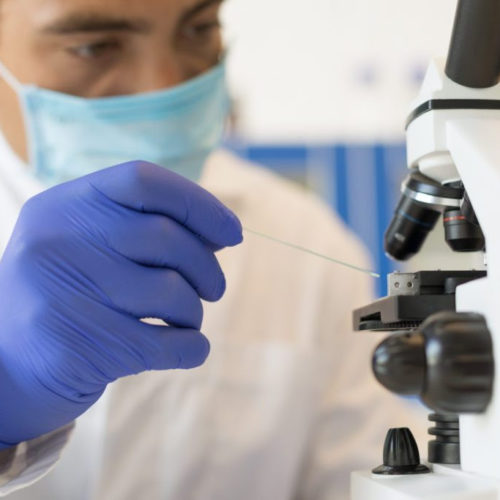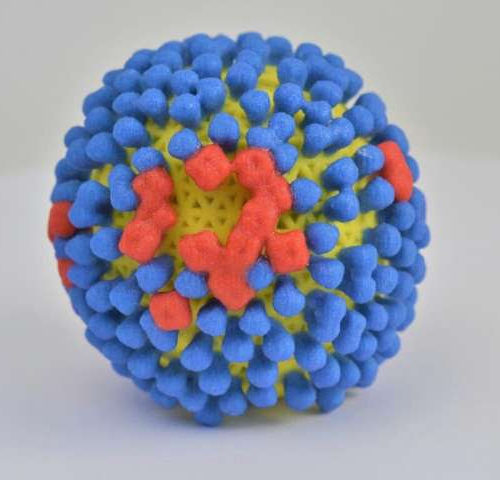by Marilynn Marchione In this Friday, June 12, 2020 file photo, a woman has blood drawn for COVID-19 antibody testing in Dearborn, Mich. Research published on Tuesday, July 21, 2020 suggests that antibodies the immune system makes to fight the new coronavirus may only last a few months in people with mild illness. (AP Photo/Paul...
Tag: <span>virus</span>
Neutralizing antibodies isolated from COVID-19 patients may suppress virus
by Columbia University Irving Medical Center Cryo-EM reconstructions show how two different antibodies (blue) bind to the spike protein of the SARS-CoV-2 virus. Credit: David Ho / Columbia University Irving Medical Center Researchers at Columbia University Irving Medical Center have isolated antibodies from several COVID-19 patients that, to date, are among the most potent in...
The explosion of new coronavirus tests that could help to end the pandemic
Researchers are scrambling to find other ways to diagnose the coronavirus and churn out millions of tests a week — a key step in returning to normality. The timing couldn’t have been worse. In March, just as Thailand’s coronavirus outbreak began to ramp up, three hospitals in Bangkok announced that they had suspended testing for...
FOR EACH COVID-19 DEATH, 9 FAMILY MEMBERS GRIEVE
Every death from COVID-19 will affect approximately nine surviving family members, according to a new study of kinship networks in the United States. Deaths from COVID-19 will have a ripple effect causing impacts on the mental health and health of surviving family members. But the extent of that impact has been hard to assess until...
Researchers discover first-in-class broad-inhibitor of paramyxovirus polymerases
by Georgia State University A new antiviral drug that is effective against a broad range of human pathogens in the paramyxovirus family, such as the human parainfluenzaviruses and measles virus, has been discovered by researchers in the Institute for Biomedical Sciences at Georgia State University. The drug binds to and inhibits paramyxovirus polymerases, the unique...
Scientists find no virus risk based on blood type.
A pair of recent studies found that people with Type A blood are no more at risk of getting the virus or falling dangerously ill than others, contradicting preliminary evidence based on a relatively small sample of people. Over the past few months, after looking at thousands of additional patients with Covid-19, scientists are reporting...
CBD may help avert lung destruction in COVID-19
MEDICAL COLLEGE OF GEORGIA AT AUGUSTA UNIVERSITY DRS. JACK YU AND BABAK BABAN view more CREDIT: PHIL JONES, SENIOR PHOTOGRAPHER, AUGUSTA UNIVERSITY Cannabidiol, or CBD, may help reduce the cytokine storm and excessive lung inflammation that is killing many patients with COVID-19, researchers say. While more work, including clinical trials to determine optimal dosage and...
How do COVID-19 antibody tests differ from diagnostic tests?
I’ve heard about new antibody testing for COVID-19. What is antibody testing? Is it the same as testing to diagnose COVID-19? Answer: With all the talk about coronavirus disease 2019 (COVID-19) testing in the news, it’s not surprising that there’s confusion about tests and how they differ. Antibody testing determines whether you had COVID-19 in...
COVID-19 could directly affect the heart
A recent stem cell study has shown that SARS-CoV-2, the novel coronavirus, can infect heart cells via the same receptor present in the lungs. This may be responsible for the cardiac complications associated with COVID-19. New evidence shows how SARS-CoV-2 may affect the heart. Experts initially thought that COVID-19 was a respiratory disease, with symptoms...
Fast-spreading mutation helps common flu subtype escape immune response
by Johns Hopkins University Bloomberg School of Public Health Strains of a common subtype of influenza virus, H3N2, have almost universally acquired a mutation that effectively blocks antibodies from binding to a key viral protein, according to a study from researchers at Johns Hopkins Bloomberg School of Public Health. The results have implications for flu...

